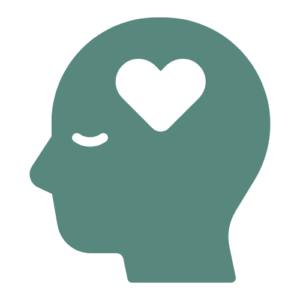How Screen Time Impacts Sleep and Mental Wellness
Staring at screens has become part of our daily lives. We use phones, tablets, computers, and TVs nonstop. While these devices help us work and stay connected, they also affect our sleep and mental health. Many people overlook this link, but understanding it can help us build healthier habits. Getting a good night’s sleep and maintaining mental resilience are essential for overall well-being and feeling truly rested.
The Connection Between Screen Time and Sleep Quality
Impact of Blue Light on Melatonin Production
Screens emit blue light, which tricks our brains into thinking it’s daytime. Research shows that as exposure to blue LED light increases, so does the suppression of melatonin, the hormone that signals our body it’s time to sleep. When we stare at screens late at night, our melatonin levels drop. That makes it harder to doze off quickly and can lead to restless nights. The longer and later we use screens before bed, the worse our sleep becomes.
Disruption of Circadian Rhythms
Our body runs on a natural clock called the circadian rhythm. It helps us wake up in the morning and feel sleepy at night. Excessive screen use at odd hours can throw this rhythm out of sync. When the cycle is off, we may feel tired during the day but find it tough to sleep at night. This imbalance can cause sleep problems and leave us feeling drained.
Evidence from Sleep Studies
Recent research shows clear links between screen exposure and poor sleep. One study found that people who used screens an hour before bed had shorter sleep durations. They also reported feeling more tired during the day. Other studies confirm that blue light from devices lowers sleep quality and delays sleep onset. These findings highlight how screen habits influence rest every night.
How Screen Time Affects Mental Wellness
Anxiety and Depression Linked to Excessive Screen Use
Using screens too much can impact your mood. High screen time, especially on social media, is tied to higher rates of anxiety and depression. Seeing idealized images or comparing ourselves to others can make us feel worse. Many people feel lonely or stressed after hours of scrolling. Research indicates that cutting back on screen time can help boost mood and alleviate anxiety, making it easier to avoid the trap of doomscrolling.
Impact on Attention, Focus, and Cognitive Function
Screens often tempt us to multitask and switch quickly between tasks. This overload makes it harder to focus on single activities or think clearly. Long periods of screen time can weaken memory, attention span, and decision-making skills. Kids and teens are especially vulnerable, as their brains are still developing.
Social Connectivity and Mental Health
Digital platforms can boost social ties. They allow us to reconnect with friends and family. Yet, they can also foster loneliness through social comparisons. Watching others’ highlight reels might make us feel left out or insecure. Balance is key. Consider setting boundaries while balancing online and face-to-face interactions for better mental health.
Practical Strategies to Minimize Negative Impact
Establishing Screen-Free Bedtime Routines
Try turning off devices at least an hour before sleep. Instead, read a book, meditate, or do gentle stretches. These calming activities help your mind relax and prepare your body for rest. Creating a tech-free zone in your bedroom can also signal your brain that it’s time to sleep.
Creating Healthy Digital Habits
Be mindful about what you view. Focus on quality content that educates or uplifts you. Use apps or device settings to set daily time limits. Avoid aimless scrolling, which eats up time and affects your mental health. Remember, balance is key.
Promoting Better Sleep and Mental Health
Spend time outdoors each day. Exercise helps improve sleep and boosts mood. Connect with friends face-to-face whenever possible. Keep a regular sleep schedule, even on weekends. Practice deep breathing or relaxation exercises to manage stress.
Conclusion
Excessive screen time can harm your sleep and mental wellness significantly. Blue light suppresses melatonin, disrupting your sleep cycle, while endless scrolling can heighten anxiety or reduce focus. Young people are especially at risk. But you can change this by setting boundaries and forming better habits. Prioritize mindful device use, create relaxing routines, and stay active. Small steps can lead to better sleep, a happier mind, and a healthier life. Start today and enjoy the benefits of balanced digital use.
References:
West KE, Jablonski MR, Warfield B, Cecil KS, James M, Ayers MA, Maida J, Bowen C, Sliney DH, Rollag MD, Hanifin JP, Brainard GC. Blue light from light-emitting diodes elicits a dose-dependent suppression of melatonin in humans. J Appl Physiol (1985). 2011 Mar;110(3):619-26. doi: 10.1152/japplphysiol.01413.2009. Epub 2010 Dec 16. PMID: 21164152.
LeBourgeois MK, Hale L, Chang AM, Akacem LD, Montgomery-Downs HE, Buxton OM. Digital Media and Sleep in Childhood and Adolescence. Pediatrics. 2017 Nov;140(Suppl 2):S92-S96. doi: 10.1542/peds.2016-1758J. PMID: 29093040; PMCID: PMC5658795.






